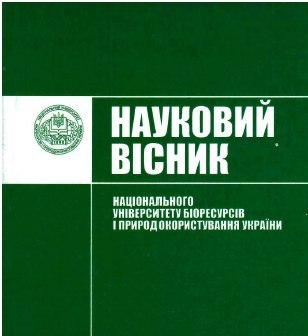Аspects of euphemisms translation in business (with refference to english and ukrainian languages)
DOI:
https://doi.org/10.31548/philolog0(276).2017.053%20-%2060Abstract
The subject of discussion is euphemisms in business English and the aspects of translation into Ukrainian. Sometimes, it is difficult for nonnative speaker to understand and translate euphemisms in business, especially in finance, accounting, economics and marketing. It is more comfortable for people not to talk about unpleasant or embarrassing topics directly. The effort to be polite makes them replace offensive words by more acceptable. What is the appropriate topic for discussion in one country is taboo for another. Ukrainian business does not share the taboo of discussing politics, but some avoiding this topic. Nowadays, in Ukrainian business journals and media avoid information that may be historically embarrassing such as immigration or the war in Donetsk region. The purpose of the use of euphemisms is to avoid unsuitable words in order not to offend hearer. Primarily, the term was used as a substitution for taboo expressions only. Later, the use of euphemisms was enlarged for any vulgar, offensive, harsh, embarrassing, blunt or other indelicate term. There are many areas in today´s English, where euphemisms are used frequently. These areas deal with socially unaccepted or feared issues, which people are ashamed to talk about directly.
Ukrainian language does not have the euphemisms for some English. This is the case when the difference between two cultures, the traditions of the two nations are very important. If someone gives you “money for tea” in Ukrainian language you may understand that someone just wants to buy, drink tea or in some cases leaves tips but the real meaning of it is “give a bribe”. It is frequently impossible to translate some ideas from one language into another without a loss of some meaning. Therefore, translating the expressions which have no cultural equivalents in the target language we allow the principle of so called “foreignization” or “alienation” and calquing the expression. Sometimes, the translator takes the liberty to offer vulgar expressions or slang as equivalents to some neutral expressions. This is a very sensitive issue since every language has its own unique verbal norms and means of expression; therefore, what does not hurt our ears in one language, may seem extremely vulgar in the other. Therefore, it is necessary neither to soften the expressions too much, nor to translate them literally. A translator ought to find a word or an expression, which will provoke the emotions and associations of the speaker or reader in the target language that produce the closest associations to the word’s original meaning.
Thus, relying on all the above mentioned we may conclude that in the process of euphemisms translation one needs to distinguish whether we are dealing with the lingual entities bearing imprints of national identity or universal expressions, the stylistic layer of which belongs to that euphemisms. Therefore, that strategy of translation has to be selected, which will have the same emotional impact on the recipient, as did the original on its reader and speaker.
References
Krysin, L. P. (1994). Evfemizmy v suchasniy rosiysʹkiy movi [Euphemisms in modern Russian language]. Russianistycs, 1-2, 28 - 49.
Larin, B.A. (1961). Pro evfemizmy [About euphemisms]. Problems of Linguistics: Articles devoted to the academician of I. Meshchaninov the 75th anniversary. Scientific proceedings of Leningrad University. Series: Philological Sciences, 60, 110 -124.
Nikitina, I.N. (2008). Evfemizmy kak obyekt issledovaniya v britanskoy i amerikanskoy lingvistike [Euphemisms as a subject of research in British and American linguistics]. Phylological issues, 2(29), 111 -114.
Nikitina, I.N. (2013). Problema perevoda evfemizmov ekonomicheskogo diskursa (na materiale angliyskogo i russkogo yazykov) [Translation problem of the euphemisms of economic discourse (with reference to English and Russian languages)]. Humanitarian Research, 11, [Electronic resources: http://human.snauka.ru].
Shynkaruk, V.D. (2011) Osoblyvosti rechennievykh struktur z emotsiino- otsinnymy znachenniamy slova [Features of the sentence structures with the emotional and evaluative meanings of the word]. Studia Linquistica. Proceedings, Volume 5, Part 2, Kyiv, P. 29-37.
Enright, D.J. (1985). Fair of Speech: The Uses of Euphemism. Oxford University Press.
Rawson, H.A.(2002). Dictionary of Euphemisms and Other Doubletalk. New York.
Orwell, G. Politics and the English Language [Text] / G. Orwell [Електронний ресурс] / Режим доступу: http://www.literaturecollection.com/a/orwell/454
The Economist. Electronic resources:http://www.economist.com/articles/4412.
Downloads
Published
Issue
Section
License
Relationship between right holders and users shall be governed by the terms of the license Creative Commons Attribution – non-commercial – Distribution On Same Conditions 4.0 international (CC BY-NC-SA 4.0):https://creativecommons.org/licenses/by-nc-sa/4.0/deed.uk
Authors who publish with this journal agree to the following terms:
- Authors retain copyright and grant the journal right of first publication with the work simultaneously licensed under a Creative Commons Attribution License that allows others to share the work with an acknowledgement of the work's authorship and initial publication in this journal.
- Authors are able to enter into separate, additional contractual arrangements for the non-exclusive distribution of the journal's published version of the work (e.g., post it to an institutional repository or publish it in a book), with an acknowledgement of its initial publication in this journal.
- Authors are permitted and encouraged to post their work online (e.g., in institutional repositories or on their website) prior to and during the submission process, as it can lead to productive exchanges, as well as earlier and greater citation of published work (See The Effect of Open Access).

